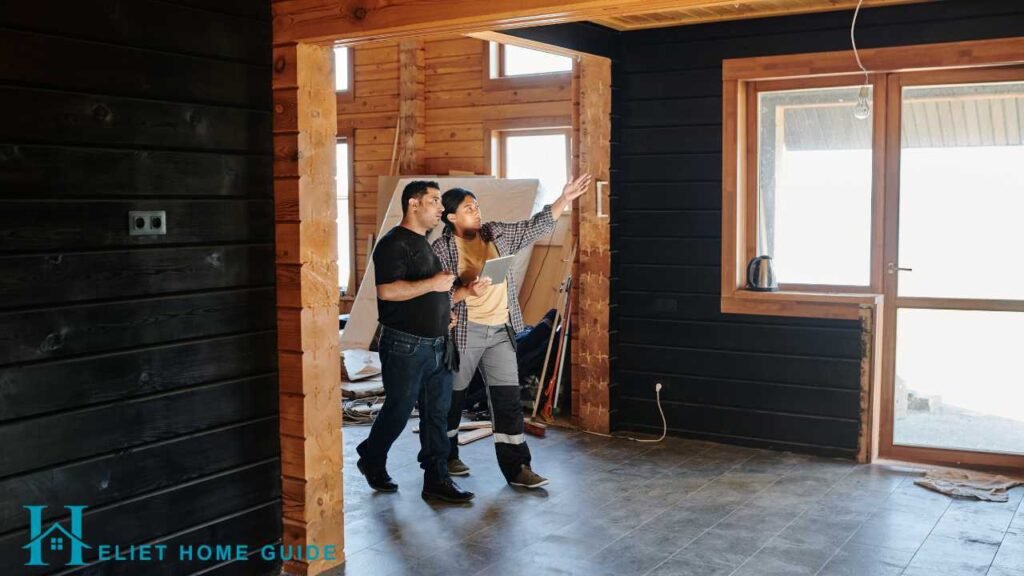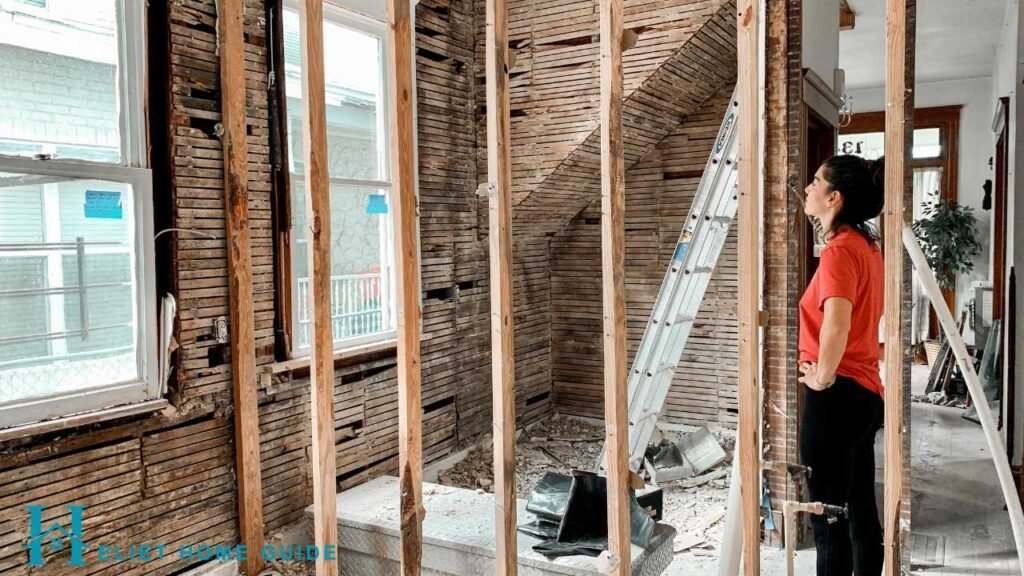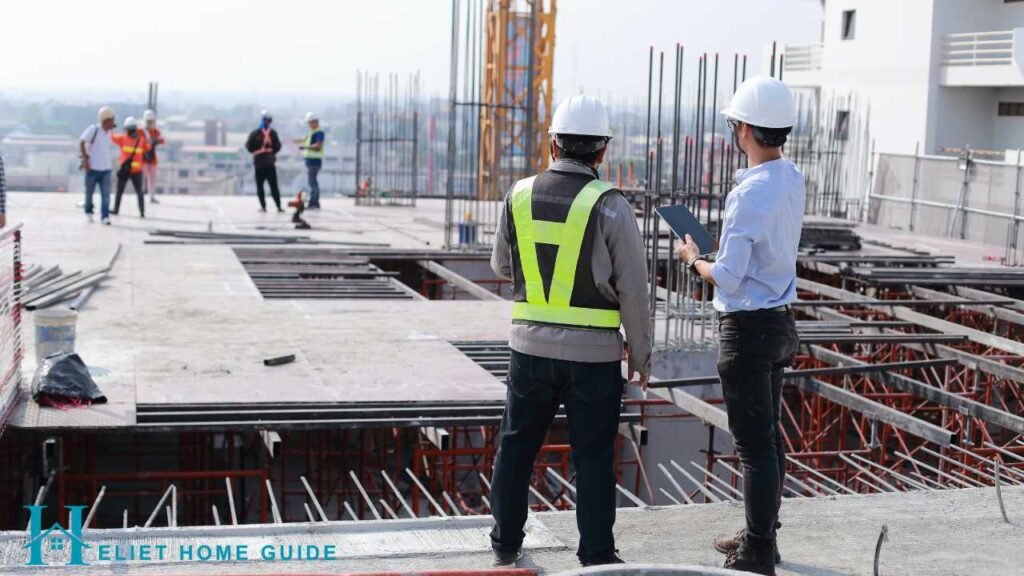When buyers plan to invest in a property, a professional home inspection is crucial to uncover hidden defects that could lead to costly repairs. Without a thorough inspection, unexpected costs might arise, causing delays or even cancellations of the sale. For sellers, getting an inspection before listing the home on the market ensures transparency and prevents last-minute surprises that could affect a signed agreement. Whether buying or selling, a home inspection provides clarity, protects finances, and helps all parties feel confident once a deal is reached.
“A home is the biggest investment most people make. Inspect before you invest!”
Key Steps for Conducting a Home Inspection
- When making a purchase, ensure your contract allows the buyer to make the deal contingent on the findings of a professional home inspection.
- The responsible party for the cost of repairing or replacing items discovered by the inspector should be clearly defined. Learn more about how to negotiate on a home to secure the best deal.
- Search your local resources like the yellow pages for listings of area home inspectors, and select a member of the American Society of Home Inspectors or the National Association of Home Inspectors. Search your local resources like the Yellow Pages for listings of area home inspectors, or get guidance from a real estate lawyer to ensure legal clarity.
- You can also contact a real estate broker for a referral to a trusted professional.
- Set up an appointment with a qualified inspector immediately after the purchase agreement is signed.
- Schedule the inspection at a time when you can go through the home with the inspector to fully understand the findings.
- Expect to pay between $300 and $500, though costs may vary based on geographic location, house size, and the expertise of the inspector.
- The inspector will test built-in appliances, electrical outlets, windows, heating, cooling systems, sprinklers, alarms, sinks, showers, tubs, and toilets to ensure everything is in good condition.

| Step-by-Step Guide to a Home Inspection Process | Details |
| 1. Review the Contract | Ensure your contract allows the buyer to make the deal contingent on the findings of a professional home inspection. |
| 2. Define Responsibilities | Clearly define who is responsible for the cost of repairing or replacing items discovered by the inspector. |
| 3. Find a Qualified Inspector | Search your local resources like the Yellow Pages for listings of area home inspectors and select a member of the American Society of Home Inspectors or National Association of Home Inspectors. |
| 4. Get a Referral | Contact a real estate broker for a referral to a trusted professional. |
| 5. Schedule the Inspection | Set up an appointment with a qualified inspector immediately after the purchase agreement is signed. |
| 6. Attend the Inspection | Schedule the inspection at a time when you can go through the home with the inspector to fully understand the findings. |
| 7. Understand the Costs | Expect to pay between $300 and $500, though costs vary based on geographic location, house size, and the expertise of the inspector. |
| 8. Inspection Coverage | The inspector will test built-in appliances, electrical outlets, windows, heating, cooling systems, sprinklers, alarms, sinks, showers, tubs, and toilets. |
“An inspection today saves thousands tomorrow. Don’t skip it!”
Pro Tips for a Smooth Home Inspection Experience
- A thorough home inspection should take at least two hours, so plan your schedule accordingly.
- Remember that an inspection is different from an appraisal; it does not determine market value and has nothing to do with property pricing.
- Consider hiring specifically licensed inspectors to handle environmental inspections, ensuring that your home is safe from potential hazards.

“An informed buyer is a smart buyer. Know your home before you buy!”
Crucial Precautions Before Scheduling a Home Inspection
- If you are a seller, it is wise to limit the amount of work you agree to pay for before listing your home.
- Do not let the desire to buy a house override the sensibility of getting a proper inspection done.
- For homes built before 1978, make sure to test for lead paint, as it can pose health risks.

“A little caution today prevents big regrets tomorrow!”
Additional Factors to Consider for a Comprehensive Inspection
| Aspect | Why It Matters |
| Defining Cost Responsibilities | Prevents unexpected costs, delays, or cancellations. |
| Specialized Testing | Includes foundation, plumbing, and roofing inspections for added security. |
| Inspector Selection | Ensures a certified and experienced professional is handling the inspection. |
| Contingency Clause | Allows the buyer to negotiate repairs or back out of a bad deal. |

“A strong foundation begins with a strong inspection!”
Understanding Cost Responsibilities and Agreement Clarity
- The article mentions that the responsible party for repairing or replacing discovered issues should be defined, but it does not emphasize how this prevents unexpected costs, delays, or cancellations.
Specialized Testing and Additional Home Evaluations
- While environmental inspections are briefly mentioned, other crucial home tests (e.g., foundation, plumbing, and roofing inspections) are not explicitly covered.
Selecting the Right Home Inspector: What You Need to Know
- The article advises choosing a home inspector from the American Society of Home Inspectors or the National Association of Home Inspectors, but it does not elaborate on why their certification matters.
Why the Contingency Clause is Important in a Home Inspection
- The article states that the purchase contract should allow the buyer to make the deal contingent on inspection findings, but it does not explain why this is important in negotiating repairs or backing out of a bad deal.
Frequently Asked Questions
What is a home inspection?
A home inspection is a thorough examination of a property’s structure, systems, and safety features, helping buyers and sellers identify potential issues before completing a real estate transaction.
How long does a home inspection take?
A thorough home inspection typically takes at least two hours, depending on the house size, condition, and inspector’s process. Larger homes or additional testing may require more time.
How much does a home inspection cost?
The average cost ranges between $300 and $500, varying based on location, house size, and inspector expertise. Specialized inspections, like environmental testing, may have additional fees.
What does a home inspector check?
Inspectors evaluate appliances, electrical outlets, plumbing, HVAC, roof, foundation, windows, insulation, and safety hazards to ensure the home is structurally sound and free of major defects.
Can a home inspection affect a sale?
Yes, a bad inspection report can delay or cancel a sale if significant issues are found. Buyers may renegotiate terms, request repairs, or even walk away from the deal. Learn more about credit history and credit scores before applying for a mortgage.
Should I attend the home inspection?
Yes, attending the inspection helps buyers fully understand the findings, ask questions, and get maintenance advice directly from the inspector, making future homeownership decisions easier.
Do sellers need a home inspection before listing?
A pre-listing inspection helps sellers identify issues before putting the house on the market, allowing repairs to be made proactively and reducing last-minute surprises during negotiations.
What happens if the home inspection reveals problems?
Buyers can negotiate repairs, request seller credits, or reconsider the purchase based on findings. Some minor issues are expected, but major concerns may impact the sale agreement.
Is a home inspection different from an appraisal?
Yes, an inspection assesses the home’s condition, while an appraisal determines its market value for lenders. An appraisal does not check for hidden defects or safety issues.
What if the home was built before 1978?
Homes built before 1978 should be tested for lead paint, as it poses health risks. Buyers should consider additional environmental inspections for safety concerns.
Conclusion
In conclusion, a professional home inspection is a vital step in any real estate transaction, ensuring transparency, financial protection, and peace of mind for both buyers and sellers. By following a structured inspection process, hiring a qualified inspector, and understanding key responsibilities, homeowners can make informed decisions and avoid costly surprises. Whether purchasing a new property or selling an existing one, a thorough inspection provides clarity, strengthens negotiations, and ultimately leads to a smoother transaction. Prioritizing a home inspection today can save significant expenses and complications in the future, making it a crucial investment in any real estate deal.

Rhys Henry is a Luxury Realtor & Senior Partner at Tyron Ash International, specializing in South East London & Kent Division. A dedicated real estate agent, Rhys is passionate about helping clients navigate buying, selling, and investing in luxury properties with expert guidance and industry-leading strategies.

